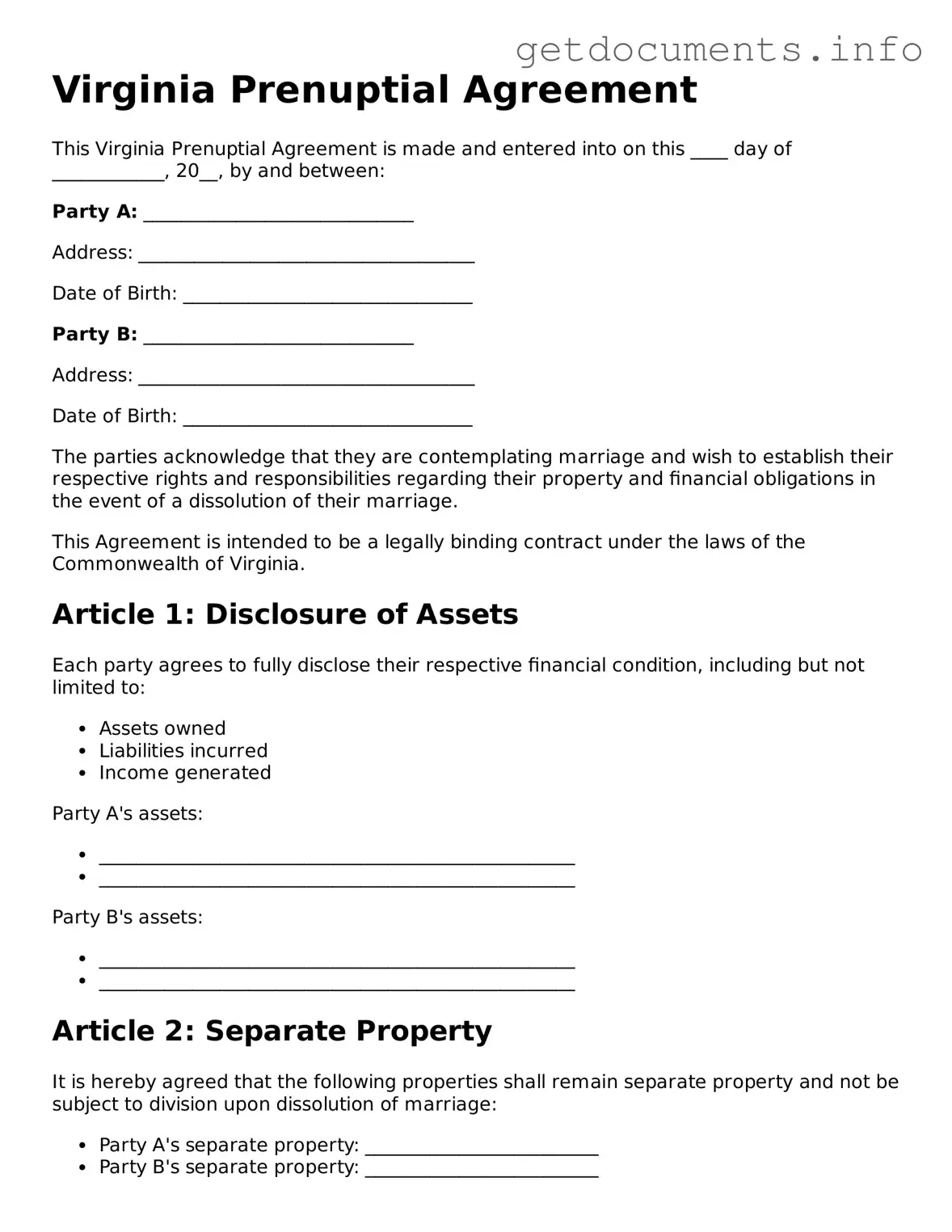Free Prenuptial Agreement Template for Virginia
A Virginia Prenuptial Agreement form is a legal document that outlines how assets and debts will be handled in the event of a divorce or separation. This agreement provides couples with the opportunity to establish clear expectations and protect their individual interests before entering into marriage. If you're considering a prenuptial agreement, take the first step by filling out the form below.
Click the button below to get started!
Access Prenuptial Agreement Editor

Free Prenuptial Agreement Template for Virginia
Access Prenuptial Agreement Editor
Got places to be? Complete the form fast
Fill out Prenuptial Agreement online and avoid printing or scanning.
Access Prenuptial Agreement Editor
or
⇩ PDF File
